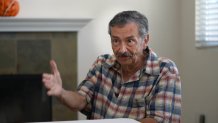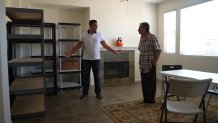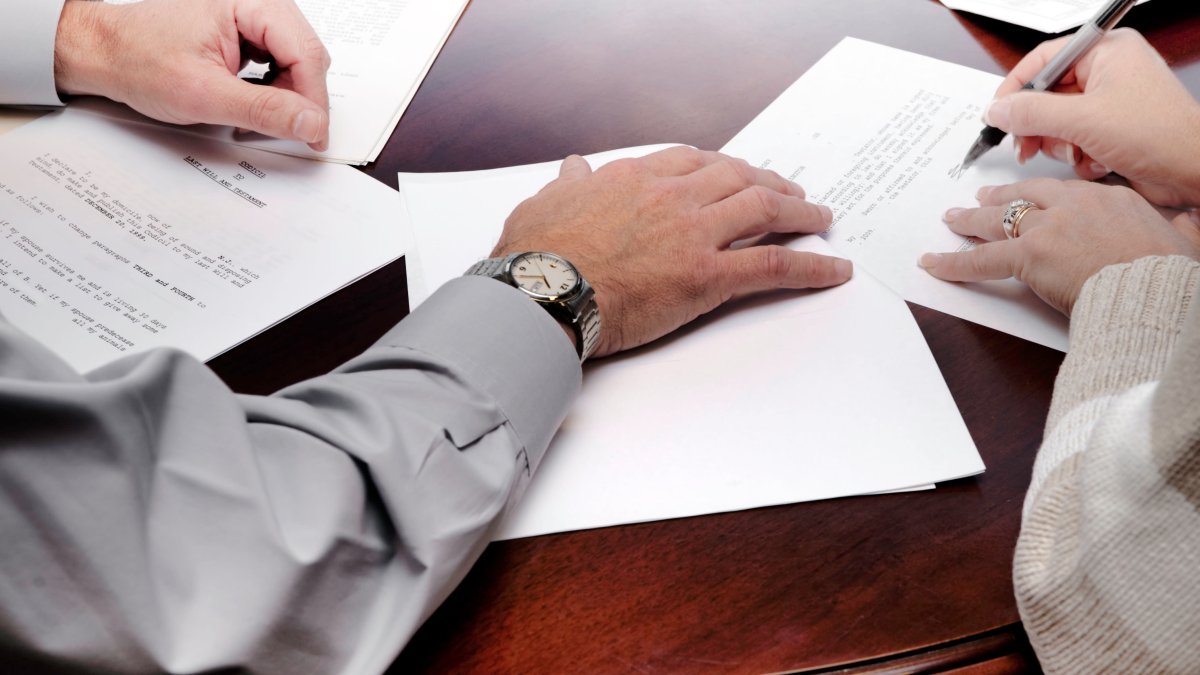Halloween and the Day of the Dead are the perfect times to talk about what will happen to all of your stuff after you die.
A long life well lived
“My dad used to sell TVs in the 50s. He was a pioneer in Tijuana selling them,” said Homero Reyes, who is 78 years old and lives in Chula Vista.

Homero Reyes from Chula Vista explains he’s ready to die when it comes to estate planning.
Like most people his age, he has a wealth of memories and life experiences he will cherish until his very last breath. At the top of the list, his time with family and friends takes up most of the space in his heart.
“I saw my parents die. I saw my older brother pass away. I saw my older sister pass away. And then you start seeing your neighbors are not there anymore. They’re gone,” he said.
His biggest loss? Rosamaria, his wife of 48 years. He’s been without her for almost two years now.
“And you want to deny it, totally. You want to say it’s not happening. It’s a bad dream. It’s a…,” Reyes paused to gather himself a bit, unable to continue. “But you have to realize, sooner or later, it happens.”
He now has what he calls a “bucket list for when he kicks the bucket.”
First off: get rid of everything he no longer needs or uses, including the living room furniture.
“I don’t have a wife. I don’t have a fiancée, and I’m not having kids anymore,” Reyes said, laughing as he showed an empty living room and dining room. “I’ve got my TV. I’ve got my dog, and that’s all I need.”

Homero Reyes shows how he got rid of most of the furniture after his wife died.
Also on his bucket list: get all his financial affairs in order.
“When my wife passed away, everything was in a joint trust. So you have to do the paperwork. Then begins the labor, which everybody hates,” he said as he sat at a fold-up table in his dining room.
Estate planning 101
Ruth Ryan-Cruz is an estate attorney who’s helping Reyes get his affairs in order. She said everyone, no matter what age, should have a plan in place for their stuff after they die.
She said she’s seen it get messy when there is no plan.
“Very messy, very quickly. Unfortunately, it’s one of those situations where if a person passes away, and they leave no documents in place, it’s a big giant cloud of confusion,” she cautioned.

Estate attorney Ruth Ryan-Cruz explains how important and accessible it is to plan what will happen to your belongings after you die.
She divides a solid estate plan into four categories.
- Advanced Directive. You’re alive, but you can’t make your own health care decisions, so you ask someone to make them for you. “Somebody who’s actually strong-blooded. Somebody who can actually handle that kind of stress,” she said.
- Financial Power of Attorney. You’re alive, but you can’t make your own financial decisions; someone will need to step in.
- Trust. This is who you want your assets to go to after you die. Not necessarily to keep them, but to manage them. These last two should be the same person, and choose carefully. “We’re looking for somebody who’s organized, who’s patient, who you actually trust with your money. We don’t want them to go through and handle your money and run off to Las Vegas, right?” asked Ryan-Cruz rhetorically.
- Will/Testament. That person will help you execute your will. Who gets what and when after you die?
When it comes to your bank accounts, setting up a Payable on Death, or P.O.D., will send the money directly to whoever you want.
How about if you don’t have a plan in place and you bid this world farewell?
Intestacy Law – California will distribute your assets for you. It can be a drawn-out and costly process if there are any challenges or hiccups to the process.
Reyes doesn’t want the state to decide what will happen to his stuff, especially if he hits the lotto. He says he plans to donate to the fire services in the city where he made his career — Tijuana.
“I want to control the action. I’m looking to benefit society even after I’m gone,” he said.
